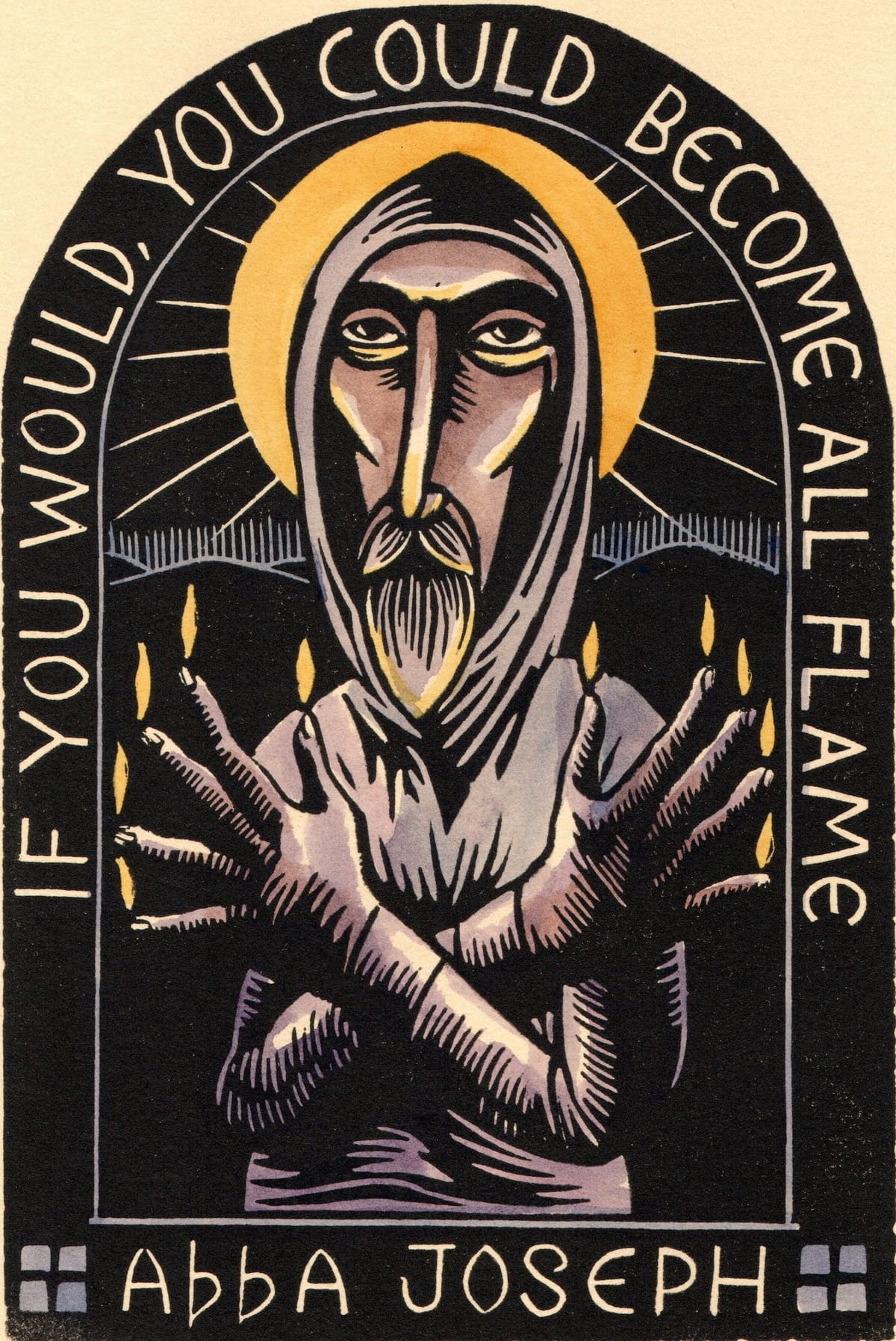“a long, loving look at the Real” or waiting to become flame

This week's Living School journaling prompt included this question:
How would I personally define the terms “contemplation” and “engaged contemplation”?
I shared this with my small group:
Contemplation is “a long, loving look at the Real”—how can I do better than that?
Contemplation is the deepest, truest form of prayer. Simply being with God. Being in Love. It’s “prayer” that could be any kind of art or practice that helps us see as God sees or know as God knows—to see the beloved wholeness of ourselves, others, a situation, the world, or to know Christ in every one and every thing. It can include silence, stillness, and solitude or the opposite—singing, walking, corporate worship. The orientation of the heart is more important the the outward form of the art or practice. More than this, that inward posture is much more important than our experience of praying or what we attain in contemplation. The not-knowing, the nothing-happening, the emptiness, the distraction, the monkey-mind, the inner resistance, the fear or anger or boredom or despair…contemplation allows all of this and more. Contemplation endures it, accepts it, includes it, waits with it, trusts God through it. In contemplation, the obstacle is the way.
Engaged contemplation seeks to integrate this kind of prayer with living real life. Maybe in a family, or with a job, or caring for others, or in service and justice work. It does not escape from the world but merely pauses and may temporarily retreat from the world, in order to return and engage life in the world at a deeper level, with new eyes and a new mind. Engaged contemplation is a way to truly “pray always.” Or it’s that aspiration, never fully attained, to—with conscious awareness—live and move and have our being in God. There can be nowhere else to live and move and have our being, but engaged contemplation tries and mostly fails but by God’s grace sometimes beholds that shimmering glory of God’s all-in-all love in which we and all creation forever abide.
And I didn't include this, I'd add... "Engaged contemplation" feels so leaden and ponderous a term compared to Paul's propulsive poetry here in Philippians,
I want to know Christ and the power of his resurrection and the sharing of his sufferings by becoming like him in his death, if somehow I may attain the resurrection from the dead. Not that I have already obtained this or have already reached the goal; but I press on to make it my own, because Christ Jesus has made me his own.
But I hear him expressing his experience of "engaged contemplation," or giving voice to that wild calling. Paul talks like someone who has truly glimpsed that shimmering glory. Like Abba Joseph in this saying of the desert elders:
Abba Lot came to Abba Joseph and said: Father, according as I am able, I keep my little rule, and my little fast, my prayer, meditation and contemplative silence; and, according as I am able, I strive to cleanse my heart of thoughts: now what more should I do? The elder rose up in reply and stretched out his hands to heaven, and his fingers became like ten lamps of fire. Abba Joseph said: Why not become completely flame?
We don't do it. The fire is the Lord's, as with Elijah on Mount Carmel.
Then the fire of the Lord fell and consumed the burnt-offering, the wood, the stones, and the dust, and even licked up the water that was in the trench. When all the people saw it, they fell on their faces and said, ‘The Lord indeed is God; the Lord indeed is God.’
In contemplation, we are the offering, waiting for fire to fall.
